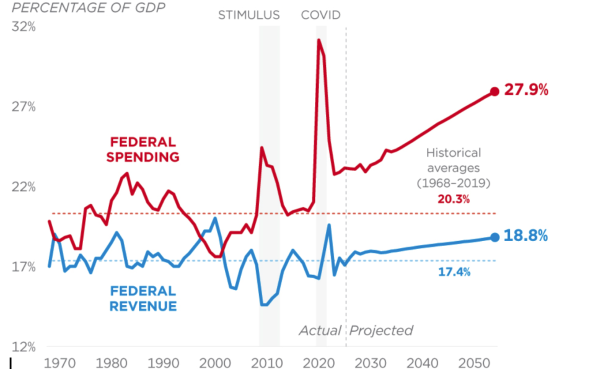Biden names Judge Ketanji Brown Jackson as his Supreme Court nominee
On Jan. 27, 2022, Supreme Court justice Stephen Breyer announced his retirement after serving for more than 27 years. On Feb. 25, President Joe Biden publicly announced Ketanji Brown Jackson as his nominee to fill Breyer’s spot. Biden previously stated that the next justice would be a Black woman – the first ever to serve on the Supreme Court.
Born on Sept. 14, 1970, Ketanji Brown Jackson is a federal judge on the U.S. Court of Appeals for the D.C. circuit. Like many Supreme Court justices, Jackson attended Harvard University and then Harvard Law School, graduating magna cum laude and cum laude. Jackson has past Supreme Court experience, having served as Breyer’s clerk, and therefore knows how Supreme Court justices must work together to reach agreements. If the Senate confirms Jackson for the Supreme Court, then not only will she be the first black woman to serve on the bench, she will also be the first former federal public defender to serve.
“Any Supreme Court justice is particularly momentous. So few presidents get the chance to actually put a Supreme Court justice in, so it’s really rare that Trump got to put in so many,” said history teacher Mark Labouchere. “Biden held true when he said that it was going to be a Black female. I think it’s great. I think it’s a big step.”
This nomination is also unique because it will impact future American generations.
“I think it definitely could [impact future generations],” said senior Andrew Thompson, a member of the Young Conservatives. “Biden put himself in an interesting situation when he promised that it would be an African American woman because it opens criticism that whoever he picks was selected just because of their race and gender.”
After a president nominates a judge to the Supreme Court, the Senate must confirm the nominee. In a confirmation, a vote takes place, and if a majority votes in favor of the nominee, then a new justice is selected. Nominees can receive criticism during this process, and if the nomination cannot stand up to scrutiny, then the president must select another nominee, and the process is repeated.
“Even though it’s a big deal that she’s African American, she’s a woman, depending on your political ideology, they come from different areas, but at the end of the day, [the justices] don’t always do what people expect,” said Labouchere. “Ultimately, these are professionals who are deciding cases based on the law. There are disputes on the law and what goes on based on the constitutionality of different laws. Overall you never know [the impact]. I think it’s always good when people are represented on the bench, or at least they feel that way. I think the ability for every segment of our population to believe that they can achieve the highest in whatever field they are, I think that’s always a good thing.”
In late 2020, Justice Ruth Bader Ginsburg, a firm believer in women’s rights, died and left an open spot on the court. President Trump nominated Amy Coney Barrett to replace her, and there are currently three women serving on the Supreme Court as justices. If Jackson is confirmed, that would make the number four. This gender balance could play a role in decisions, such as women’s rights.
“I think it will, especially if she’s a huge supporter of it,” said ninth grader Deven Patel. “If she’s in more of a powerful position, then what she says actually goes, and she can change the way that we think about women’s rights, and how in the past women weren’t treated equally to men.”
“I would imagine, yes, in some way, shape, or form, it would impact those decisions, which I think is good,” said Labouchere. “I think it’s good to have people with varying opinions on the bench, particularly when we’re entering into this new realm of abortion and lots of other big issues out there.”
Unlike any other office, Supreme Court justices serve for life, or until they retire. As a result, it is very rare for a president to select a new justice, meaning that those who do often get remembered for whom they select.
“It’s a huge responsibility to nominate somebody to the bench,” said Labouchere. “I think to what extent it impacts Biden’s legacy is unknown because, unlike presidents, justices serve for life. Their impact will be overgrown over the president that put them there, to begin with.”
Although selecting a new justice is considered an important act as president, some students feel as though there are more pressing issues that could impact a president’s legacy.
“I think there are other issues, at the moment, that will more drastically impact how the Biden administration is viewed by history,” said Thompson. “Russia invading Ukraine this weekend obviously will have a bigger mark on his presidency than a supreme court nomination.”




